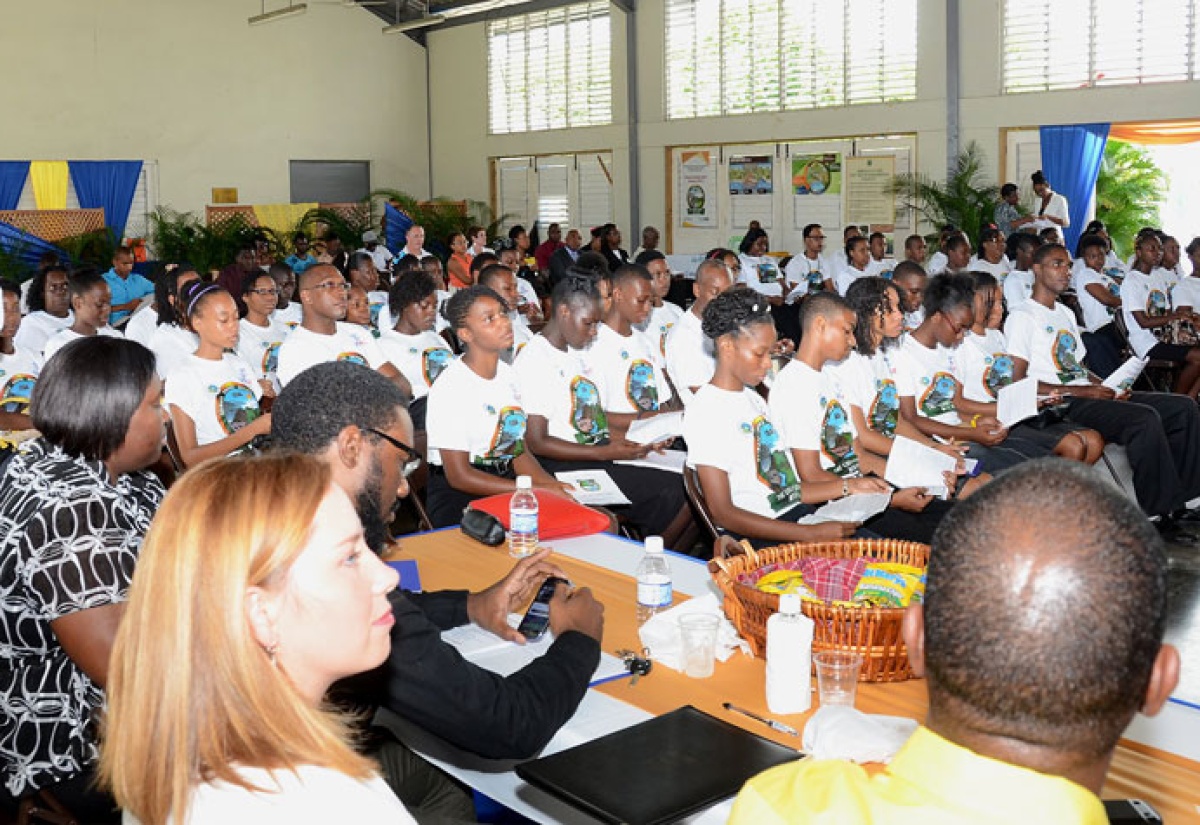98 Graduate from Climate Change Action Training Programme
By: , November 4, 2013The Key Point:
The Facts
- The training equips young people for leadership through the introduction of key climate change concepts.
- It is imperative that Jamaica and other countries around the globe learn to adapt to climate change.
The Full Story
Another 98 youngsters have graduated from the Climate Change Action Training (CCAT) Programme, which is aimed at developing dedicated youth advocates for action on climate change in their communities.
Since its inception, the CCAT programme has reached over 300 Jamaican youth ages 14 to 28 primarily. The training equips young people for leadership through the introduction of key climate change concepts and action strategies complemented by personal skill development. The participants are introduced to topics such as advocacy, project proposal and resume writing and leadership.
The graduates, who hail from the parishes of Kingston, St. Andrew, St. Ann and St. Catherine, have been exposed to various activities ranging from information exchange sessions on climate change, to proposal writing and project implementation. The training was supported by field activities, community consultations and group engagement sessions, which will feed into the design and implementation of a project for each participating community.
Addressing the graduation ceremony at the Girl Guides Association headquarters in St. Andrew on Friday, November 1, Office Director, Environment and Health at the United States Agency for International Development (USAID)/Jamaica, Suzanne Ebert, said it is imperative that Jamaica and other countries around the globe learn to adapt to climate change, which she describes as “a fundamental challenge which confronts our planet and all of humanity.”
“We must get serious about adaptation and we must do so now. There is no time for delay. What’s more, the people who are bearing the brunt of the effects of climate change are those who can least afford to cope, and who have likely contributed least to causing the problem. Adaptation is both a practical need and a moral imperative,” she stressed.
Pointing out that three quarters of all disasters globally are now climate related, up from a half just a decade ago, Miss Ebert said that a country’s ability to adapt to climatic changes is even more vital. This is especially true in the Caribbean, which she noted, is already experiencing the effects in more frequent and intense hurricanes, extreme rainfall, and longer periods of drought.
“The climate is changing and so we must also change how we act in respect to the environment…Together we must transform our economies and embark on a lower emission, clean energy path. We must strengthen our ability to adapt to a changing climate. Adaptation is an essential investment in our common future,” she said.
In his remarks, Senior Technical Director for Mitigation in the Climate Change Division of the Ministry of Water, Land, Environment and Climate Change, Gerald Lindo, said that while persons know about climate change, they often fail to make the connection with how it affects their day to day lives.
“This is why awareness building and sensitization efforts are key components of any climate change action strategy,” he said.
“Climate change is very much a generational issue. It’s happening now, but it’s going to be happening even worse in 50 years or in a hundred years or in a thousand years. So we have to look to the young people to get energised to become the change agents to go out and do the work that not just the government, not just the country, but the world needs to be done,” he said.
The CCAT Programme has a 16 module curriculum developed through extensive community and agency consultations. The programme’s objective was to create a cadre of informed, skilled and dedicated youth Climate Change Action Agents (CCAAs) at the community level to provide immediate and ongoing climate change leadership and action.
The USAID-funded Jamaica Rural Economy and Ecosystems Adapting to Climate Change (Ja REEACH) Project, and the Jamaica 4-H Clubs have been partnering to deliver CCAT through training and action projects within schools churches and communities.
Formerly the Marketing and Agriculture for Jamaican Improved Competitiveness (MAJIC) Project, Ja REEACH aims to protect and enhance the welfare of residents and ecosystems of targeted rural communities affected by climate change.
It is being jointly implemented by the Government and the United States-based Agricultural Co-operative Development International/Volunteers in Overseas Co-operative Assistance (ACDI/VOCA), with support from the United States Agency for International Development (USAID).


